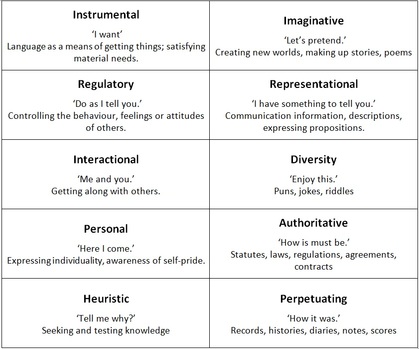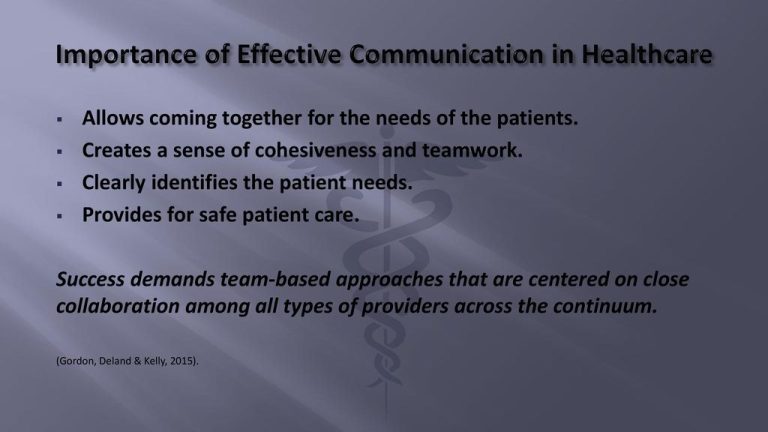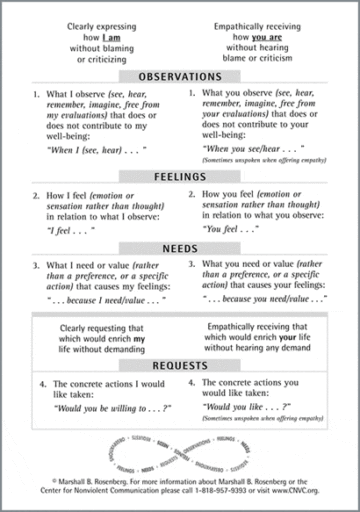What is Feedback in Communication?
Feedback in communication is the process of giving or receiving information about the effectiveness of a message. It helps in improving clarity, understanding, and mutual respect among individuals.
In communication, feedback plays a crucial role as it enhances the interaction, ensures effective message delivery, and promotes a healthy exchange of ideas. It helps the sender to modify their message based on the receiver’s response, leading to better overall communication outcomes.
Effective feedback assists in bridging gaps, resolving conflicts, and fostering stronger relationships between individuals or groups. It is an essential element in effective communication, promoting understanding and enabling continuous improvement in interpersonal and professional interactions.

Credit: mirro.io
The Importance Of Feedback In Communication
Feedback plays a crucial role in effective communication, allowing individuals to exchange information and ideas. It serves as a powerful tool for improvement, enabling individuals to identify their strengths and weaknesses. By giving and receiving feedback, individuals can enhance their understanding of the intended message, ensuring clarity and mutual understanding.
Additionally, feedback encourages active participation and engagement, as it fosters a two-way communication process. Different types of feedback, such as constructive feedback, positive feedback, and corrective feedback, provide valuable insights for both the sender and receiver. It empowers individuals to reflect on their communication skills and make necessary adjustments for improvement.
By incorporating feedback into communication, individuals can establish stronger connections, build trust, and ensure effective transmission of information. Thus, feedback is an essential element of communication, facilitating growth and development for both individuals and organizations.
Understanding Feedback In Communication
Feedback in communication refers to the process of exchanging information to assess the effectiveness of a message. It helps individuals or groups understand how well their message was received and interpreted by others. Communication feedback is crucial in both interpersonal and professional settings, as it aids in mutual understanding and provides an opportunity for improvement.
Effective feedback should be constructive and specific, focusing on behaviors or actions rather than personal attributes. It should also be timely, allowing for prompt adjustments and course correction. By providing feedback, individuals can clarify misunderstandings, address concerns, and enhance overall communication.
Thus, understanding the definition, purpose, and elements of communication feedback is instrumental in fostering effective and meaningful interactions in various contexts.
The Types Of Feedback In Communication
Feedback in communication plays a crucial role in conveying information effectively. It can be categorized into different types. Positive feedback highlights accomplishments or strengths, motivating individuals to continue performing well. For example, praising an employee’s exceptional sales performance. On the other hand, negative feedback addresses areas that require improvement, pointing out mistakes or shortcomings.
Constructive criticism offers specific suggestions for growth, such as recommending additional training or mentoring. Neutral feedback provides opinions without leaning towards either positive or negative aspects. It allows individuals to make their own judgments based on the information provided. For instance, an unbiased review of a product or service.
Understanding the various types of feedback in communication enables individuals to give and receive information more effectively, fostering better relationships and growth.
The Role Of Feedback In Interpersonal Communication
Feedback in interpersonal communication plays a crucial role. It fosters understanding and resolves conflicts effectively. In personal relationships, feedback helps to strengthen connections and build trust. It allows individuals to express their feelings and needs openly. Feedback also has a significant impact in professional relationships.
It promotes growth and development by providing constructive criticism and acknowledging achievements. It allows employees to learn from their mistakes and enhance their performance. Managers can guide and mentor their team members through feedback. In conclusion, feedback is an essential aspect of communication, enabling individuals to improve, grow, and build successful relationships, both personally and professionally.
It is a valuable tool for self-awareness and continuous improvement. Through giving and receiving feedback, individuals can enhance their communication skills and achieve better outcomes.
Feedback In Organizational Communication
Feedback plays a crucial role in organizational communication, especially in the workplace. It helps in enhancing performance and productivity by providing valuable insights and suggestions for improvement. When team members receive feedback, they can align their actions and behaviors accordingly.
This promotes effective collaboration and fosters a culture of continuous improvement. The feedback loop in team communication allows for open and constructive conversations, enabling individuals to learn from each other’s experiences. By giving and receiving feedback, employees can identify areas of strength and areas that need development.
This process not only empowers individuals to grow but also contributes to the overall success of the organization. Feedback serves as a catalyst for positive change, bridging the gap between intention and impact, and ensuring effective communication within the workplace.
Effective Strategies For Giving And Receiving Feedback
Feedback is an essential aspect of effective communication. When giving feedback, it is important to be constructive and helpful. Key principles and techniques can enhance the impact of your feedback. Receiving feedback gracefully involves active listening and a willingness to learn and improve.
It is vital to acknowledge the feedback and show appreciation for it. Actively listen, reflect, and take steps towards self-improvement based on the feedback received. By implementing these strategies, feedback can become a valuable tool for growth and development. Understanding the significance of feedback and employing effective strategies can lead to improved communication and personal growth.
Overcoming Challenges In Giving And Receiving Feedback
Feedback in communication refers to the process of giving and receiving information to improve understanding and performance. Overcoming challenges in this area is crucial for effective communication. Cultural considerations play a significant role, as understanding cultural differences allows us to tailor our feedback in an appropriate manner.
Emotional intelligence is also important, as it helps us navigate the emotional component of feedback situations. Managing our emotions in these situations ensures that the feedback is constructive and well-received. Communication barriers, such as language differences or technological limitations, can hinder the feedback process.
However, by adapting our communication style and utilizing various tools, we can overcome these barriers. Ultimately, the goal is to provide effective feedback, despite the challenges, to foster growth and improvement.
Implementing A Feedback Culture
In today’s fast-paced world, effective communication is crucial for the success of any organization. Feedback plays a vital role in enhancing communication practices and fostering a supportive environment. By incorporating feedback in our communication interactions, we create opportunities for growth and improvement.
Encouraging open and transparent feedback enables individuals to express their thoughts, ideas, and concerns freely. This cultivates trust and engagement within the organization, allowing for open dialogue and collaboration. Implementing a feedback culture requires a commitment to active listening and valuing others’ perspectives.
By creating an environment that embraces feedback, organizations can foster continuous learning, personal development, and ultimately enhance their overall communication effectiveness. Embracing feedback allows for the identification of areas for improvement, leading to better communication outcomes and stronger relationships among team members.
Frequently Asked Questions Of What Is Feedback In Communication?
What Does Feedback Mean In Communication?
Feedback in communication refers to the process of exchanging information to provide valuable insights, opinions, or reactions. It helps individuals or groups evaluate their performance, improve understanding, and make necessary adjustments. In a conversation or interaction, feedback serves as a two-way communication tool that promotes effective learning and growth.
It allows participants to communicate their thoughts, feelings, and observations, contributing to a better understanding of each other’s perspectives. Feedback can be both positive, highlighting strengths and successes, and constructive, offering suggestions for improvement. By giving and receiving feedback, individuals enhance their communication skills, build stronger relationships, and foster continuous improvement.
In summary, feedback plays a crucial role in effective communication by facilitating the exchange of thoughts, opinions, and insights, ultimately leading to ongoing growth and development.
What Is Feedback In Communication And Examples?
Feedback in communication refers to the response or reaction given by the receiver to the sender’s message. It helps in ensuring that the message was accurately understood and interpreted. For example, if a teacher gives a lecture and asks the students questions to gauge their understanding, their responses can be considered feedback.
Feedback can be verbal or non-verbal, such as nodding, asking questions, or giving a thumbs-up sign. It plays a crucial role in effective communication as it allows the sender to adjust their message accordingly. In business, feedback can be received through surveys, customer reviews, or performance evaluations.
It helps to identify areas for improvement and to strengthen communication channels. Feedback is an essential tool for enhancing communication effectiveness and achieving clarity and understanding between the sender and receiver.
What Is A Feedback Explain?
Feedback is a valuable tool for gaining insight, improving performance, and fostering growth. It is a process of providing information to individuals or teams regarding their actions, behaviors, or performance. Feedback can be given in various forms, such as verbal or written comments, evaluations, or ratings.
It helps identify strengths and weaknesses, provides guidance for development, and enhances communication and collaboration. Additionally, feedback enables individuals to reflect on their actions and make appropriate adjustments. It plays a vital role in personal growth, professional development, and organizational success.
By offering constructive feedback, organizations can cultivate a culture of continuous improvement and create an environment where individuals can thrive and reach their full potential.
What Are The 4 Types Of Feedback In Communication?
The four types of feedback in communication are: 1. Positive feedback: it reinforces and praises effective communication, encouraging the person to continue their good work. 2. Constructive feedback: it identifies areas for improvement in communication skills, offering specific suggestions for growth and development.
3. Negative feedback: it points out communication weaknesses or mistakes, aiming to correct and rectify them for more effective communication. 4. Evaluative feedback: it assesses the overall quality of communication, providing a comprehensive analysis of strengths and weaknesses. Each type of feedback plays a crucial role in effective communication, helping individuals to enhance their skills and achieve better understanding and clarity in their interactions.
Conclusion
Feedback is an essential element in effective communication, allowing individuals and organizations to grow, improve, and achieve their goals. By providing constructive criticism, praise, or suggestions, feedback opens up opportunities for personal and professional development. It fosters understanding, strengthens relationships, and enhances overall productivity.
Whether it is positive feedback that motivates individuals to continue their good work or constructive feedback that helps them course-correct, feedback plays a pivotal role in communication dynamics. It encourages active listening, empathy, and respect, enabling all parties to feel valued and understood.
Moreover, feedback should be timely, specific, and actionable, providing clear direction for improvement. By embracing a culture of feedback, businesses can enhance collaboration, increase employee engagement, and ultimately achieve higher levels of success. So, make feedback an integral part of your communication strategy, and watch as it transforms your relationships and outcomes.





